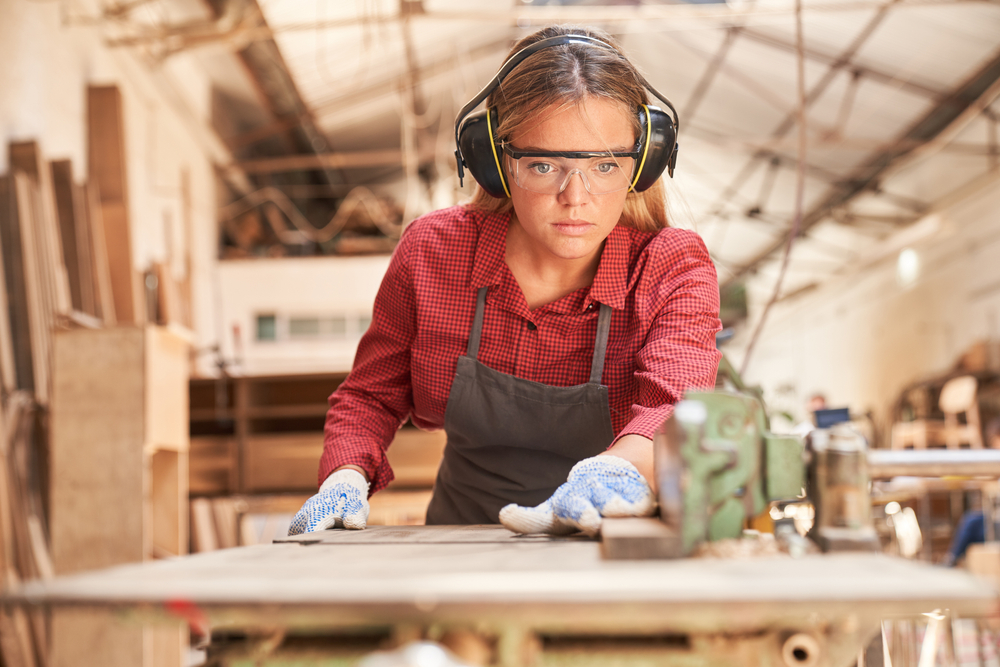
Hearing protection plays an essential role in protecting your ears against harmful noise levels, whether at work, concerts, or even during DIY projects at home. However, you could be left exposed to possible risks if any one of several possible factors interferes with your hearing protection’s effectiveness. Understanding these problems can help you address them proactively and optimize the benefits of your protective gear.
Common reasons why hearing protection fails
Unexpected difficulties will happen even when you follow best practices. You use your earmuffs faithfully at work, use earplugs at concerts, and avoid noisy situations whenever you can. Yet, some variables can still disrupt your hearing protection’s efficiency. Fortunately, by recognizing these common pitfalls, you can make educated adjustments to ensure your hearing is always well-protected.
1. Specific situations call for specific types of hearing protection
Hearing protection isn’t one-size-fits-all, and selecting the wrong type for a given setting can decrease its effectiveness.
Generally, hearing protection falls into two main categories:
- Earmuffs: Bigger, headphone-like device that covers the whole ear.
- Earplugs: Small foam or rubber plugs that tuck securely into the ear canal.
There is an optimal type for each situation:
- In settings like a construction site where noise is irregular and you might need to regularly remove your hearing protection, earmuffs are the more effective choice.
- Locations with a continual noise threshold, including a factory floor or the cabin of an airliner, are the ideal times to utilize earplugs.
Earmuffs are easier to handle when there is a need to regularly put on and remove your hearing protection. However, earplugs, especially disposable ones, can be easily lost, leaving you exposed when noise levels spike again. The first step towards effectively safeguarding your hearing is to select the right type of hearing protection.
2. Fit and function are impacted by anatomy
Everybody’s ears are unique, which means not all hearing protection devices will fit everyone equally well. An average sized ear is what standard earplugs and earmuffs are designed for, but a more individualized solution might be necessary for your ear’s anatomy.
- Larger ear structures: Earmuffs may be uncomfortable if your ears are larger than average creating gaps in the seal.
- Smaller ear canals: The noise-blocking ability of standard-sized earplugs might not be effective if narrower ear canals impede the formation of a proper seal.
Poorly fitting hearing protection can lead to frustration and a temptation to discontinue their use completely, putting your hearing in danger. Consider opting for custom-fitted earplugs or professionally fitted earmuffs if you spend a great deal of time in loud settings. These tailored solutions provide optimal comfort and effectiveness, ensuring you remain protected in any scenario.
3. Disregarding regular maintenance and replacement
In order to remain effective, hearing protection devices need to be properly maintained just like any other devices do. Wear and tear, improper cleaning, and disregarding replacement schedules can all jeopardize their ability to protect your ears.
The following are a number of tips on how to care for hearing protection:
- Replace Cushions: Over time, earmuff cushions can lose their pliability. In order to maintain a tight seal, replace the cushions when necessary.
- Inspect for Damage: Check the elastic band on earmuffs frequently. Their ability to efficiently block noise can be jeopardized if the elastic band is loose or stretched.
- Clean Properly: Earplugs and earmuffs come into contact with earwax and other debris, which can build up over time. In order to safely and effectively clean your earplugs or earmuffs, consult the manufacturer-recommended cleaning guidelines.
Disregarding these simple maintenance tasks can render your hearing protection less effective or even useless. Regular upkeep is crucial to extend their lifespan and ensure reliable performance.
The advantage of a hearing specialist
If you’re unsure whether your hearing protection is getting the job done, schedule a consultation appointment with us. We can check your present devices, suggest alternatives, and even provide custom solutions tailored to your specific requirements.
Safeguarding your hearing is a lifelong commitment, and it’s worth the effort to ensure you’re using the right tools for the job. By dealing with these common challenges, you can confidently protect your ears from damaging noise and preserve your hearing for years to come.